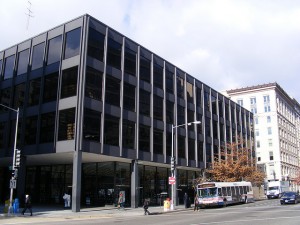
Flickr: Paul Simpson
Martin Luther King, Jr. Memorial Library will close during a federal government shutdown.
A federal government shutdown will do more than impact federal employees (and their BlackBerrys) — many D.C. residents, including the District’s most vulnerable residents, will feel the pain.
Residents lacking a computer or access to high-speed Internet won’t be able to rely upon their local library to cross the digital divide. Public and charter schools will remain open, so students should probably take advantage of the Internet access they can get at their schools — unless you attend the University of the District of Columbia, which will be closed.
Folks who rely on the Circulator buses to get to work will have to hop on a Metrobus instead (bright side: Metro cars could be a lot less crowded!).
But many basic services would continue, including Temporary Assistance to Needy Families, food stamps and Medicaid. United Medical Center and St. Elizabeth’s hospitals will remain open, and firefighters and police officers will continue to work. Other services will be limited, including unemployment benefits. Mayor Vincent Gray announced that non-essential employees likely won’t be working: about 14,000 of the District’s 35,000 municipal employees would be furloughed under the D.C. plan [PDF].


